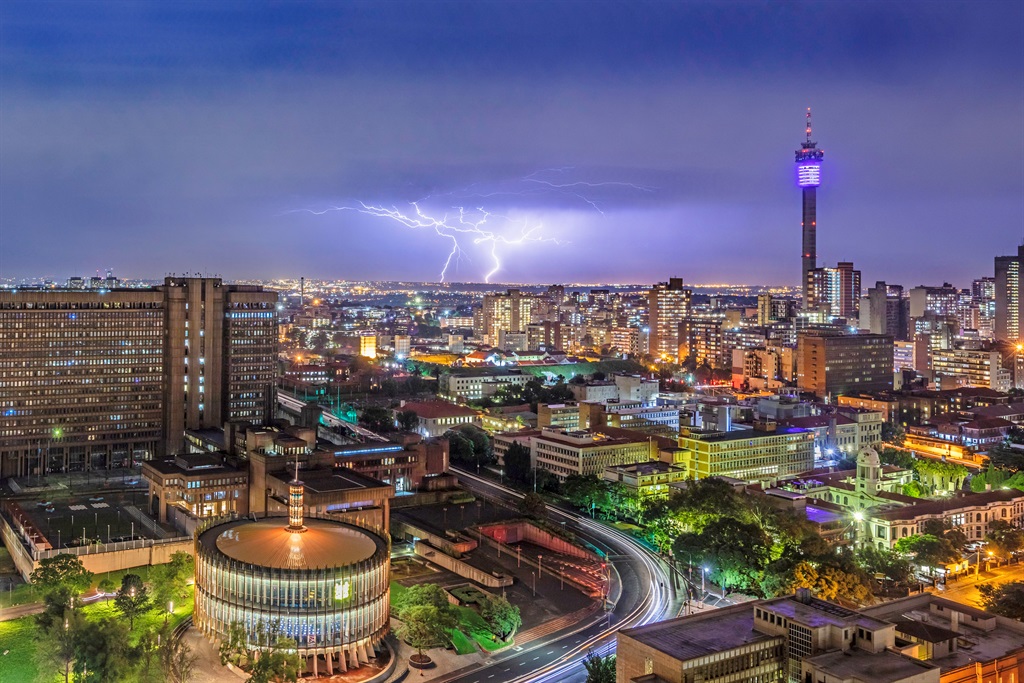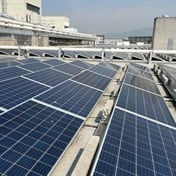
- The City of Joburg plans to incentivise customers with solar PV to sell it excess power.
- The tariffs are lower than those offered by the City of Cape Town.
- An energy expert says that Joburg's incentive is about a third less than that offered in other developing countries.
- For climate change news and analysis, go to News24 Climate Future.
The City of Joburg plans to implement a feed-in tariff, an incentive for customers with solar PV to sell it excess power, but it's lower than that offered by the City of Cape Town.
City Power this week issued a statement highlighting a range of electricity tariffs that were approved by the National Energy Regulator of South Africa (Nersa). These tariffs will kick in this month.
"For alternative energy tariffs, City Power is working on implementing a feed-in tariff, where customers with PV solar systems can feed back their excess power to the grid and reduce their monthly electricity bill," it said.
Residents with solar PV have an approved tariff of 85.50c/kWh. For businesses with generation of less than 1MW, they have an approved tariff of 70.85c/kWh.
While this is a step in the right direction, Matthew Cruise, energy expert and head of public relations at Hohm Energy, said that the tariff is quite low. He said:
Cape Town's feed-in tariff, by comparison, is higher.
Nersa's approved tariff for Cape Town is 78.98c/kWh. The city also recently announced a 10.15% increase on this tariff. On top of that, Cape Town also offers its customers a 25c/kWh incentive. The tariff – inclusive of VAT - is R1.24c/kWh.
READ | Cape Town eyes cheaper feed-in meters to cut cost of selling power back to the grid
Citing a report on BizNews, Cruise noted that the cost per unit of electricity in Johannesburg averaged much lower than that of Cape Town. In fact, the increase in Cape Town's tariffs was 17.6%, whereas the increase in Johannesburg's tariffs was limited to 14.97%.
The City of Cape Town is earning more money by selling electricity than Johannesburg. Cruise believes that revenue may be a contributing factor in Johannesburg offering a lower feed-in tariff.
He suggested that Johannesburg's incentive is less than a third of what has been effective in other developing countries, to incentivise solar adoption and feed into the grid.
"Feed-in-tariffs have been used to great effect in other developing countries to incentivise rapid adoption of solar by citizens," said Cruise.
Vietnam is one such a developing country where the government offered a feed-in tariff that saw 9 000MW of solar PV installed over a six-month period. "In South Africa, 9 000MW equates to nine stages of load shedding being removed..." said Cruise.
"What is significant about the Vietnam example is that the solar feed-in tariff was above the market price of electricity at the time.
But most municipalities rely a lot on electricity sales to raise revenue, a matter that was raised by former Joburg mayor Mpho Phalatse at a meeting with the Presidential Climate Commission (PCC) last year.
Recalling this at the PCC's June meeting, Valli Moosa, deputy chairperson of the commission, noted concerns that if the economic models do not work - in that municipalities can't raise revenue - it will be difficult to adopt feed-in tariffs or any proposals where municipalities can't sell power. He described electricity sales as the "bread and butter" of municipalities.
City of Cape Town Mayor Geordin Hill-Lewis, who also attended the PCC meeting last month, similarly pointed out that for now, the amount of residents opting for solar PV is still few and not significantly eating into revenues just yet. But if these numbers pick up, it could present challenges for revenue raising.
"At the moment, we are able to cope with that risk… and the reason is because we are still dealing with relatively small numbers... We are getting about 1 000 applications a month for feed-in [tariffs]," Hill-Lewis told the commission. "A thousand a month is manageable, but what happens when that becomes 20 000? Then we have a big problem on our hands," he said.




 Publications
Publications
 Partners
Partners












